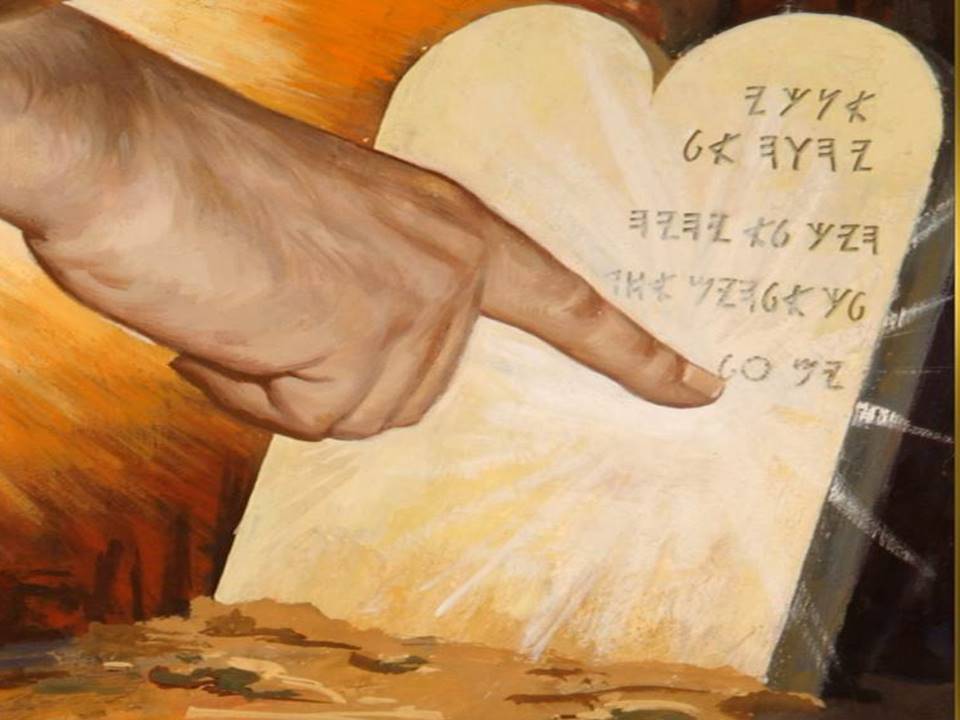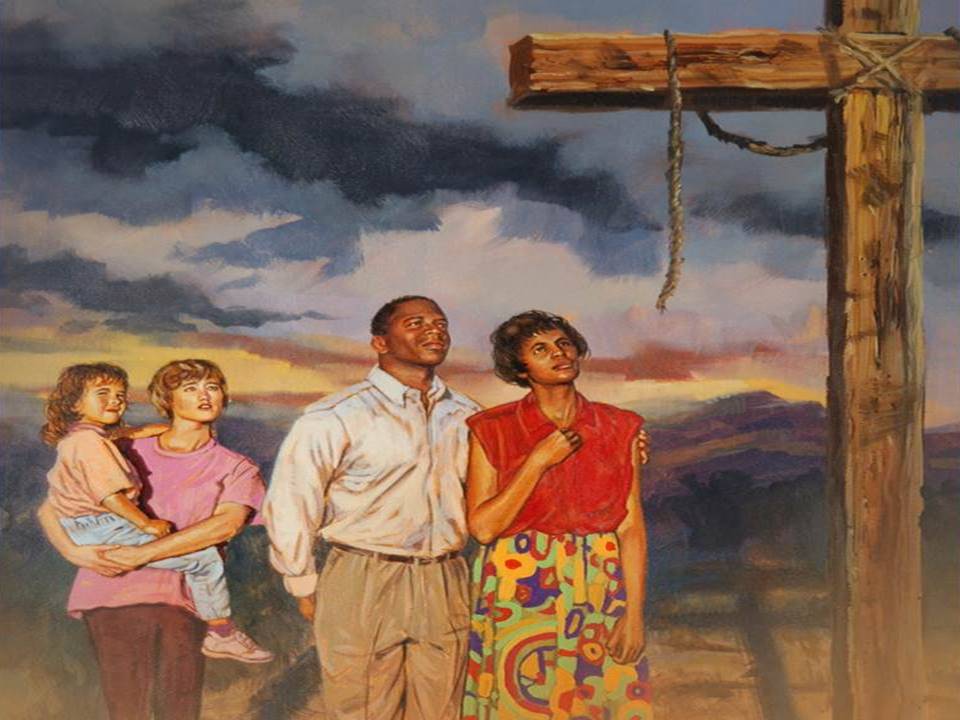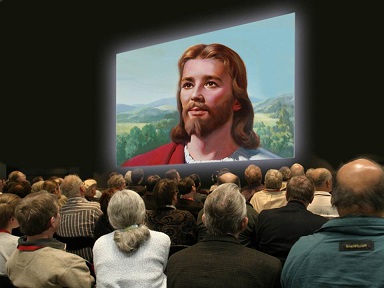LESSON 1
THE CEREMONIAL LAWS
You are welcome to another edition of Insights from God's Word, a Bible Study Programme that is committed to sharing God's Word by allowing the Bible to speak for itself.
In this edition, we continue with our series on The Law of God. In our previous study, we considered various laws that God gave the people of ancient Israel through His servant Moses. These laws included Civil Laws, Health Laws, Ceremonial Laws and the Ten Commandments.
Friends, from the teachings of Christ and the apostles in the New Testament, we learn clearly that some of the civil laws that guided the customs, practices and religious life of the people of ancient Israel (such as levirate marriages, letters of divorce, punishment by stoning and circumcision) are no longer mandatory practices by the Christian Church today (see Matthew 5:31-32; Acts 15:1-31).
Unlike some of the civil laws that are not mandatory today, the New Testament gives ample evidence that the Health Laws that God gave the people of ancient Israel are still binding upon God's people today. In case you have any question in relation to the subject of health in Scripture, you can request for our series on health which is dubbed: How to Prosper in Health through any of our contact outlets below. In this series on health, you will discover clear Bible - based answers for your perplexing questions on the subject of health.
Beloved, besides the Civic and Health Laws, God also gave the people of ancient Israel Ceremonial Laws and Moral Laws. In this study, I want us to focus on the Ceremonial Laws while we tackle the Moral Laws in our next study.
Friends, when the people of ancient Israel made their journey through the wilderness to the promised land, God commanded Moses to build Him a sanctuary so He would dwell among them (Exodus 25:8).The laws that were given to the people in relation to the sanctuary, its services and feasts are generally known in Christendom as Ceremonial Laws. God gave the Ceremonial Laws to the Israelites to teach them the way or plan He was going to follow to save mankind from the terrible results of sin (Psalm 77:13). Through the rites and ceremonies of the sanctuary service, God taught the people of ancient Israel about the atoning sacrifice of the Redeemer to come (see Leviticus 1; Leviticus 4; Leviticus 5; Leviticus 23; John 1:29; 1 Peter 1:19).
Beloved, it is clear from Scripture that the ceremonial laws had to do with several ordinances which were related to the sanctuary service. These ordinances included various sacrifices and offerings such as burnt offering, peace offering, sin offering, trespass offering, meat offering and drink offerings (see Leviticus 1, 2, 3, 4, 5, 6, 7, 23). Beside these offerings, the sanctuary services also included various feasts and holidays that were celebrated by the people. Feasts such as the Passover, Unleavened Bread, First fruits, Pentecost, Trumpets, Day of Atonement and Tabernacles (see Leviticus 23) were celebrated by the people of ancient Israel every year. Most of these feasts were associated with holy convocations that were known as sabbaths or sabbath days. Everything that was associated with the sanctuary; be it sacrifices for sins, various offerings, feasts or holidays were all described as types, shadows or figures that pointed forward to the Great Antitype to come, even Jesus Christ (see Hebrews 9:1-15).
Friends, the sanctuary service rituals, its ordinances and diverse feasts were practiced by God's people until the death of the Redeemer. In fact, at the death of Christ, the veil that separated the holy place from the most holy place in the temple at Jerusalem was torn from the top to the bottom, signifying the end of the sanctuary sacrificial system (see Matthew 27:50-51). The veil which covered the Shekinah Glory of God in the most holy place of the sanctuary was torn away by an unseen hand, laying bare the sacred dwelling place of Jehovah. This divine action was to make it very clear to the people of ancient Israel that the sanctuary sacrificial system had come to an end.
The lesson God wanted to teach His people was simple. The One whom all the symbols represented had finally shed His blood on Calvary's cross for the remission of the sins of mankind. The Lamb of God without blemish had died (John 1:29; 1 Peter 1:19). For this reason, the apostle Paul could make the statement:
"Having abolished in his flesh the enmity, even the LAW OF COMMANDMENTS CONTAINED IN ORDINANCES; for to make in himself of twain one new man, so making peace"(Ephesians 2:15; Capital Emphasis Added).
Beloved, it is important to note that in Ephesians 2:15, Paul refers to a law of commandments that is contained in ordinances. The key word 'ordinances' was utilized by the apostle Paul to describe the laws that were associated with the sanctuary service. Thus friends, anytime you come across the word 'ordinances', especially as used in relation to the law or commandment, you must recognise that the Scripture is trying to identify or point out the Ceremonial Laws that were related to the sanctuary (review Hebrews 9:1-15, particularly verses 1-5 and 10).
Besides the text in Ephesians 2:15, we come across other passages where Paul utilizes the key word 'ordinances' to describe ceremonial laws that were related to the sanctuary. From Colossians 2:14-17, we read the following:
"2:14 Blotting out the HANDWRITING OF ORDINANCES that was against us, which was contrary to us, and took it out of the way, nailing it to his cross;
2:15 And having spoiled principalities and powers, he made a shew of them openly, triumphing over them in it.
2:16 Let no man therefore judge you in meat, or in drink, or in respect of an holyday, or of the new moon, or of the sabbath days:
2:17 Which are a shadow of things to come; but the body is of Christ."
(Colossians 2:14-17; Capital Emphasis Added)
In the passage above, Paul utilizes the term 'the handwriting of ordinances' to describe the kind of law he is describing in the passage. This key expression helps us to quickly recognise that Paul is making reference to the ceremonial laws of the sanctuary. According to Paul, the ceremonial laws of the sanctuary were nailed to the cross at the death of Christ (review Matthew 27:50-51). As a result, sanctuary service ordinances such as meats, drinks, holidays, new moons and sabbath days were no longer binding upon God's people. As Paul rightly put them, they were all a shadow of things to come (compare Colossians 2:15-16 with Hebrews 9:9-10).
Beloved, we must be careful to note that the items mentioned by Paul in Colossians 2:16 are sanctuary service ordinances that are not to be confused with the requirements of God's Moral Law. For instance, many of God's children in Christendom today read Colossians 2:16 from dynamic modern day translations such as the NIV, RSV, GWT, and GNT among others and conclude that this Pauline text gives liberty to the Christian to take in any food or drink without any restrictions as well as possess the liberty to disregard the keeping of the seventh - day Sabbath as found in God's Ten Commandment Law. Let's see how the NIV, RSV, GWT and GNT translate Colossians 2:16:
New International Version: "Therefore do not let anyone judge you by what you eat or drink, or with regard to a religious festival, a new moon celebration or a sabbath day."
Revised Standard Version: "Therefore let no one pass judgement on you in questions of food and drink or with regard to a festival or a new moon or a sabbath."
Gods Word Translation: "Therefore let no one judge you because of what you eat or drink or about the observance of annual holy days, new moon festivals, or weekly worship days."
Good News Translation: "So let no one make rules about what you eat or drink or about holy days or the New Moon Festival or the Sabbath."
Friends, a casual reading of these four translations will strongly suggest to any person that Paul is expressing the thought that the Christian Church has the liberty to consume any kind of food or drink, as well as disregard the Seventh - day Sabbath because Christ has nailed the law or commandments to the cross. But beloved, if we take our time to critically examine the items Paul enumerated in Colossians 2:16, we will realize that they are all related to the sanctuary service ordinances and as such not to be confused with God's Ten Commandment law. The King James Version (KJV) captures the sanctuary service terminologies in Colossians 2:16 correctly as follows:
"2:16 Let no man therefore judge you in MEAT, or in DRINK, or in respect of an HOLYDAY, or of the NEW MOON, or of the SABBATH DAYS:
2:17 Which are a SHADOW of things to come; but the body is of Christ."
(Colossians 2:16-17; Capital Emphasis Added).
Beloved, from the book of Hebrews, Paul uses similar terminologies in relation to the sanctuary service ordinances. From Hebrews 9:9-10, we read the following from the apostle Paul in relation to the sanctuary ordinances:
"9:9 Which was a FIGURE for the time then present, in which were offered both GIFTS AND SACRIFICES, that could not make him that did the service perfect, as pertaining to the conscience;
9:10 Which stood only in MEATS and DRINKS, and DIVERS WASHINGS, and CARNAL ORDINANCES, imposed on them until the time of reformation."
(Hebrews 9:9-10; Capital Emphasis Added)
Friends, are you seeing some similarities between the terminologies used in Colossians 2:16-17 and Hebrews 9:9-10? I know you can't miss the clear similarities. You see beloved, for us to appreciate the sanctuary service terminologies that Paul utilized in His epistles to the Colossians and Hebrews, we have to go back to the Old Testament and get some clues about the sanctuary service ordinances.
From Leviticus 23:37, we read the following from Moses, the servant of God, in relation to some of the ordinances of the sanctuary: "These are the feasts of the LORD, which ye shall proclaim to be holy convocations, to offer an offering made by fire unto the LORD, a burnt offering, and a MEAT OFFERING, a sacrifice, and DRINK OFFERINGS, every thing upon his day" (Capital Emphasis Added; see also Leviticus 23:18).
Beloved, I believe you now see clearly that the meat or drinks in Colossians 2:16 do not refer to everyday food or drinks that we use to satisfy our hunger but rather sanctuary service ordinances. Thus, it is clear that the passage of Colossians 2:16 cannot be used to justify the eating of everything, especially unclean food. The 'meats' or 'drinks', as we have discovered from Scripture, basically denote sanctuary service ordinances that came to an end at the death of Christ. Moreover, according to Paul's words in Colossians 2:16, it is clear that the celebration of the monthly new moon festivals (see 1 Chronicles 23:31; 2 Chronicles 2:4; Nehemiah 10:33), which were also related to the sanctuary came to an end when Christ died on the cross.
Friends, another important sanctuary ordinance that came to an end at the death of Christ was the observation of the Yearly Sabbath Days. It is important to note that these yearly sabbaths were different from the weekly Seventh - day Sabbath as we find stipulated in the fourth commandment of the Decalogue. The weekly Sabbath had its origin right after creation when sin has not yet surfaced (see Genesis 2:1-3). Thus, the Seventh - day Sabbath cannot be described as part of the sanctuary ordinances whose services pointed forward to the sacrifice of Christ for the sins of mankind. The Sabbath cannot be referred to as a figure or shadow of things to come. It was instituted right after creation to be a perpetual memorial of Gods creatorship (review Genesis 2:1-3). In fact, it is as a result of its early origin that God could say concerning the Seventh - day Sabbath the following:
"20:8 REMEMBER the sabbath day, to keep it holy.
20:11 For in six days the LORD made heaven and earth, the sea, and all that in them is, and rested the seventh day: wherefore the LORD blessed the sabbath day, and hallowed it."
(Exodus 20:8, 11; Capital Emphasis Added).
Irrespective of these clear words of Scripture, many of God's people are led to believe that the Seventh - day Sabbath is no more binding because it is classified as a part of items described as a shadow of things to come in Colossians 2:16-17. What this class of believers are not aware of is that God instituted various sabbath days in relation to the feasts of the sanctuary sacrificial system. It was the celebration of these sabbaths of the sanctuary that came to an end at the death of Christ on the cross and not the Seventh - day Sabbath which was instituted by God right after creation.
The key to understand Paul's words in relation to the ceremonial sabbaths of the sanctuary lies in the Old Testament. From Leviticus 23, we come across some important points in relation to these ceremonial sabbaths. Let us consider a few of them:
1) In relation to the feast of trumpets, we read the following:"23 And the LORD spake unto Moses, saying, 24 Speak unto the children of Israel, saying, IN THE SEVENTH MONTH, IN THE FIRST DAY OF THE MONTH, SHALL YE HAVE A SABBATH, A MEMORIAL OF BLOWING OF TRUMPETS, an holy convocation. 25 Ye shall do no servile work therein: but ye shall offer an offering made by fire unto the LORD" (Leviticus 23:23-25; Capital Emphasis Added).
Friends, unlike the Seventh - day Sabbath, this particular sabbath was not celebrated every week but rather once in a year (specifically, on the first day of the Seventh month). Unlike the seventh - day Sabbath, the observance of this sabbath could fall on any day of the week. It is also importantly to note that this sabbath was not observed for a memorial of creation, but rather, for a memorial of blowing of trumpets, a ceremony which was to usher in the feast of atonement.
2) Moreover, in relation to the feast of tabernacles, we read the following: "Also in the FIFTEENTH DAY OF THE SEVENTH MONTH, when ye have gathered in the fruit of the land, ye shall keep a feast unto the LORD seven days: ON THE FIRST DAY SHALL BE A SABBATH, AND ON THE EIGHTH DAY SHALL BE A SABBATH" (Leviticus 23:39; Capital Emphasis Added).
Beloved, the fifteenth day of the seventh month was the Feast of Tabernacles. In the observation of this feast, the Lord commanded the Israelites to keep a feast unto Him seven days. The first day was a sabbath, and the eighth day was also a sabbath. Once again, these sabbaths are specifically different from the weekly Sabbath in the Ten Commandments which fall on every seventh day (see Exodus 20:10), and serves as a memorial of God's creatorship.
Thus beloved, Paul's words in Colossians 2:14-16, were basically about the ceremonial laws of the sanctuary that came to an end when Christ died on the cross. Paul's message in this text has nothing to do with the Laws of Health or the Ten Commandments. Unfortunately, many modern Bible translators have not been true in bringing out the underlying textual basis of the text in Colossians 2:16, thus leading many people to believe differently concerning the clear message in the text.
Exhortation: "16 All the people of the land shall give this oblation for the prince in Israel. 17 And it shall be the prince's part to give burnt offerings, and MEAT OFFERINGS, and DRINK OFFERINGS, in the FEASTS, and in the NEW MOONS, and in the SABBATHS, in all solemnities of the house of Israel: he shall prepare the sin offering, and the MEAT OFFERING, and the burnt offering, and the peace offerings, to make reconciliation for the house of Israel. 18 Thus saith the Lord GOD; In the first month, in the first day of the month, thou shalt take a young bullock without blemish, and cleanse the SANCTUARY" (Ezekiel 45:16-18; Capital Emphasis Added).
"And he shall confirm the covenant with many for one week: and in the midst of the week he shall cause the SACRIFICE AND THE OBLATION TO CEASE" (Daniel 9:27; Capital Emphasis Added).
"50 Jesus, when he had cried again with a loud voice, yielded up the ghost. 51 And, behold, the veil of the temple was rent in twain from the top to the bottom; and the earth did quake, and the rocks rent" (Matthew 27:50-51).
In our next study, we will consider the topic: The Ten Commandments. The Bible study references for this study are Exodus 20:3-17, Romans 4:15, Matthew 22:37-40, Psalm 111:7-8, Psalm 19:7-11, Matthew 5:17-19, John 14:15, James 2:8-12, Revelation 14:12, Revelation 22:14 and Daniel 7:25. Please do well to go through these passages before the next study is released.
Stay blessed and keep shining for King Jesus.
Maranatha!
Powered by White Throne Ministries












